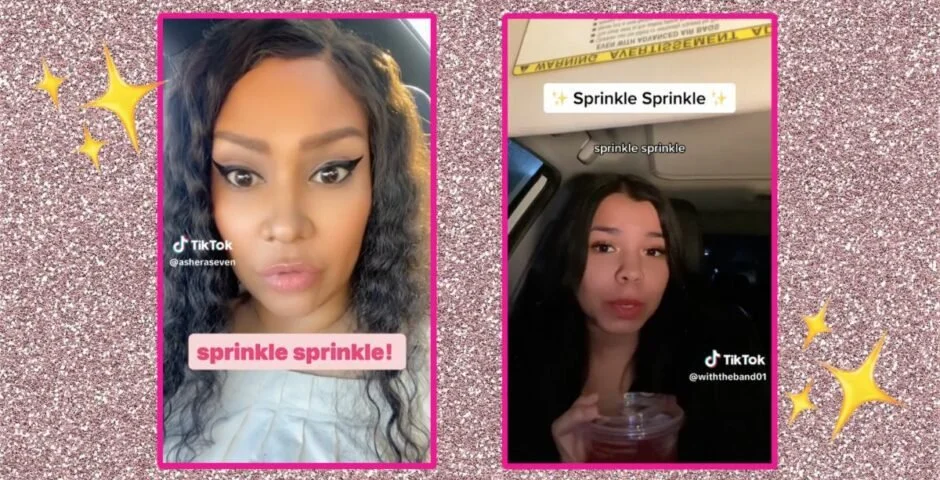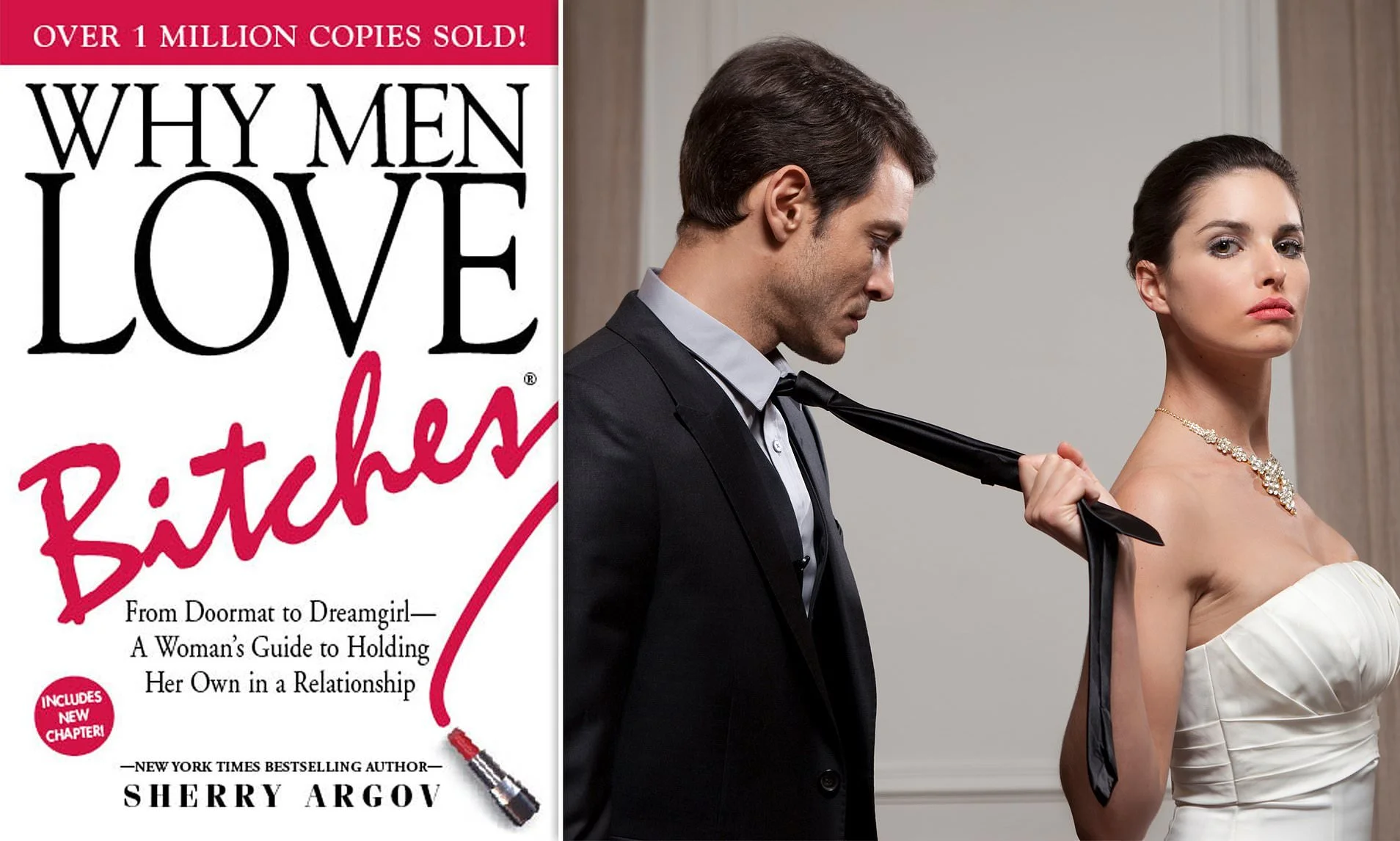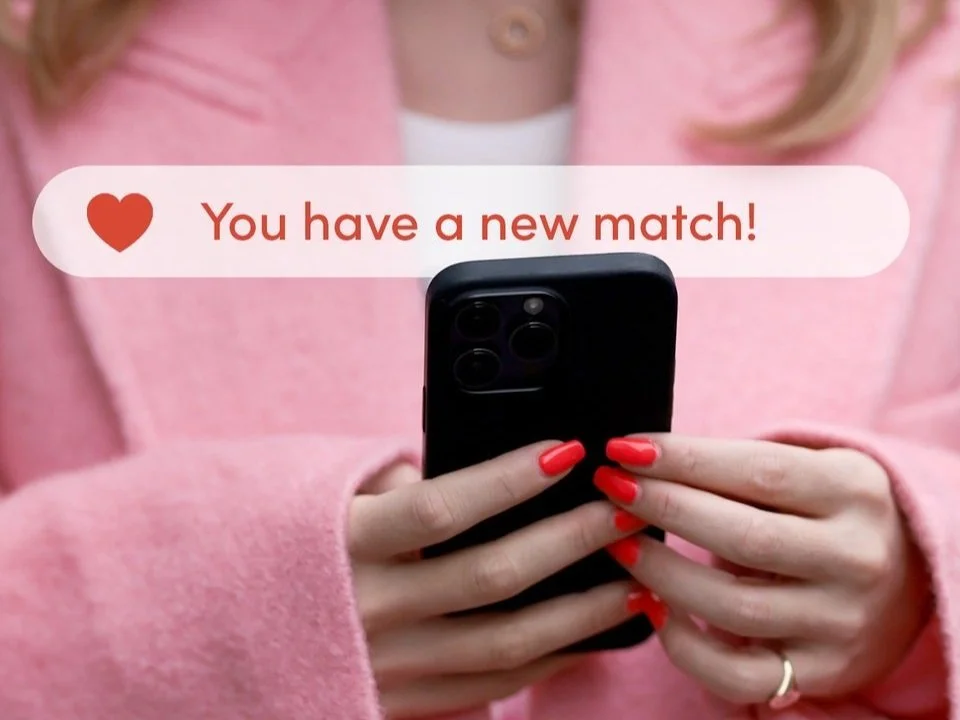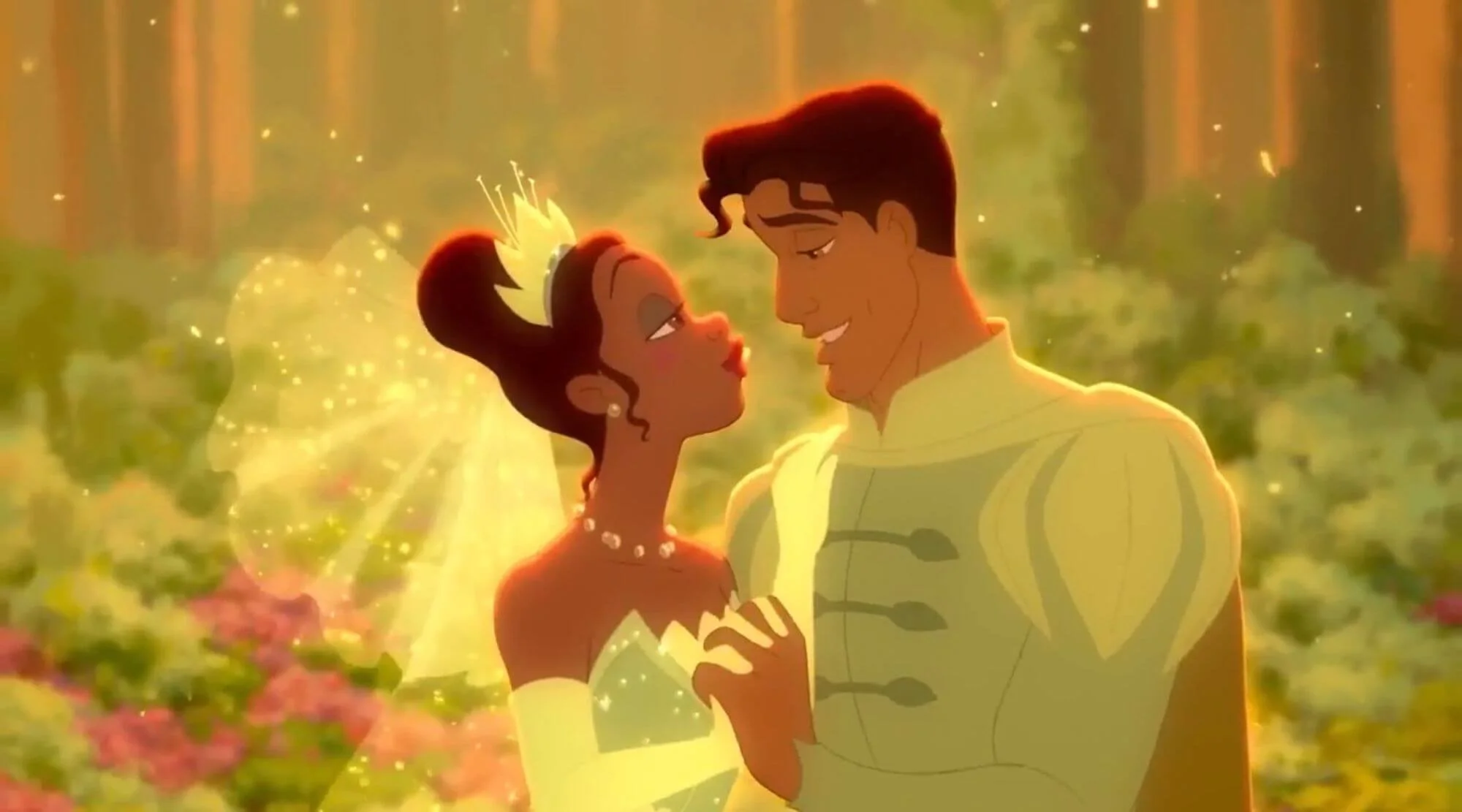Dating as a Young Woman in the Digital Age: Trad-Wives, Celibacy, Sprinkle-Sprinkle & Situationships
Image credit: SheraSeven
*Names of people interviewed have been changed for privacy reasons.*
“You know full well a vow of celibacy is not the answer” and “Thou shalt not give up on dating and become a nun,” read the highly controversial billboards put up by self-proclaimed ‘’feminist’’ dating app Bumble as part of their re-brand this May. The advertising campaign received a huge backlash for dismissing and mocking a choice that has led many women to feel safer and more empowered, with Bumble eventually taking down the billboards and issuing an apology. Nevertheless, the campaign opened up a conversation about the wider discontent towards modern dating amongst young women. Recent years have seen an increase in women turning towards celibacy due to concerns around safety and reproductive rights, and the South Korean 4B Movement, in which women are boycotting men, dating and heterosexual relationships, is a symptom of this. There has also been an increase in women experiencing ‘’dating app burnout,‘’ with statistics showing that young women often face sexual harassment on dating sites and apps, with 44% experiencing being called an offensive name and 19% having had someone threaten to physically harm them. However, dating apps alone are not the only cause of discontentment in the dating scene, with many women experiencing disillusionment with the wider hookup culture that is prevalent. In addition to this, TikTok has created a minefield of controversial dating advice targeted at Gen Z women, with influencers such as SheraSeven (labelled by some as the ‘’female Andrew Tate’’) encouraging women to forgo romance all together and find a wealthy older man to provide for them financially. On the flip side, other viral TikTok’s show self proclaimed ‘’trad wives’’ documenting their seemingly perfect ‘’traditional nuclear family’’ lifestyle. As dating and relationships become as confusing as ever, this article examines the harsh reality of dating as a young woman in the digital age.
Sprinkle, Sprinkle & Why Men Love Bitches
Image credit: The Tab
Leticia Padua, known online as SheraSeven, is a self proclaimed ‘’financial advisor’’ with over 650,000 subscribers on YouTube, famous for her humorous and highly controversial dating advice videos that are often turned into viral TikToks. Known for her signature catch phrase ‘’sprinkle, sprinkle’’ and her witty one liners, Shera’s advice centres around encouraging women over the age of 25 to find affluent older men and implement manipulation tactics in order to get the men to financially provide for them. ‘’The best thing to say when you’re trying to get men to spend on you is: ‘I’m looking for a gentleman. I’m looking for someone who knows how to treat a lady. I’m looking for someone who is not afraid to be generous when it’s appropriate’,’’ says Shera in one viral TikTok. ‘’How do you make a man emotionally invested in you? Make him financially invested in you,’’ she tells her audience in another. Men without money are labelled by Shera as ‘’dusties’’ to be avoided at all costs. Shera has been criticised for her controversial advice, having been accused by many of encouraging women to become ‘’gold diggers.’’ ‘’SheraSeven is undoing years of fighting for [women’s] rights independent of men,’’ says Angela Elliot from London. ‘’A woman can want gifts but she shouldn’t demand it,’’ says Ben, a twenty-four year old university student. ‘’From a male perspective, if we meet women who think that way we won't treat them the way we would a good woman who doesn't expect gifts or money etc. We would consider it for women who serve in ways we want for example cooking or cleaning out of affection, not simply being pretty and expecting generosity.’’ Nevertheless, the popularity of SheraSeven’s advice is evidence of the disappointment and harm that women are facing when engaging in heterosexual relationships with men. As highlighted by Kimberly McIntosh in an article for The Guardian, ‘’The comment sections under [Shera’s] TikTok videos are full of women who are fed up with modern heterosexual dating to the point that they don’t believe men have anything to offer them emotionally. SheraSeven’s advice teaches women to game patriarchy and turn their pain into power.’’ In a society where hookup culture is prevalent, the type of relationships that Shera advocates for provide an alternative for young women who are fed up of engaging in casual relationships with men who have little to offer. ‘’[Since following SheraSeven’s advice] I have accepted that my high standards are important for me,’’ says Nicki, a twenty-five year old Shera fan. ‘’I am more confident in my opinions and don’t want to conform to society’s standards if it doesn’t feel right to me. I am not a fan of casual dating and dating apps and I realised that’s okay and doesn’t make me different from other people my age.’’ Shera’s fans also vehemently disagree about comparisons made between her and Andrew Tate. ‘’I don’t agree with this as I feel that Andrew Tate and Shera are very different,’’ Nicki says. ‘’For me Andrew Tate seems very aggressive and Shera is the opposite and always tells people that they don’t need to watch her content if they don’t agree. I don’t think she’s toxic as I feel that she wants to help women out and [make them] realise their self worth.’’
Image credit: Daily Mail
The idea of ‘’beating men at their own game’’ has become a prevalent theme in much of the dating advice on TikTok targeted towards young women. There has been a resurgence in popularity of the controversial 2000s dating advice manual ‘’Why Men Love Bitches’’ amongst Gen Z women on TikTok, and videos encouraging women to tap into their ‘’dark feminine energy,’’ and ‘’make a man chase them’’ have racked up millions of views. At the core of this advice are several key principles: never like a man more than he likes you; never chase a man or put in more effort than he does; never let him know how much you care; always leave quietly, don’t be emotional; men don’t respond to words they respond to no contact. While such advice has benefits in regards to encouraging women to hold their own in relationships and other romantic entanglements, the extent that women are being told to withhold communication and suppress their emotions in order to ‘’game’’ men can be seen as troubling. ‘’I used to be a big fan of Why Men Love Bitches and similar TikTok dating advice,’’ says Amelia, twenty-three, from London. ‘’It helped me a lot in terms of gaining confidence and learning how to set boundaries, however, there were definitely some romantic situations in the past where I wish I had just been honest about my feelings rather than following advice to play it cool and act ‘unbothered.’ I guess the advice did technically work in getting men to chase me, but I’ve learned the men that like to engage in this kind of game playing are usually toxic and emotionally unavailable. I’m very emotional when it comes to dating and I would have saved myself a lot of time and heartache if I had just expressed my emotions rather than bottling them up. Because I know when I meet the right man he’ll accept me for who I am and I won’t need to play games in order to maintain his interest.’’
Trad-Wives, Traditional Gender Roles & The Andrew Tate Pipeline
Nara Smith, Image credit: RUSSH
‘’My husband mentioned he was craving coca-cola the other day, and since we were out of soda I decided to make him some,’’ sounds the serene voice of Nara Smith in a video with over 3.8 million likes. The model and influencer has over 8.7 million followers on TikTok and rose to fame in recent years for her elaborate ‘’from scratch’’ cooking videos and portrayal of her seemingly idyllic traditional family lifestyle. Recent years have seen an influx in women who are curbing modern gender roles in favour of a more conservative lifestyle. These self-proclaimed ‘’trad-wives,’’ shorthand for traditional wives, are typically adorned in flowy dresses or vintage 1950s clothing and devote their time to taking care of their home and families, all whilst documenting it on social media. On the surface, the rise of the trad-wives could be seen as another symptom of the cultural backlash against hook-up culture as women forgo casual relationships for commitment and financial security from men in a traditional marriage dynamic. However, as highlighted by Jessica Grosse in The New York Times, the majority of trad-wife content on social media is, in fact, watched by right-wing leaning men who fantasise about having a submissive housewife. Furthermore, it is perhaps wise to view the content produced by these trad-wife influencers through a cynical lens due to the fact that content creation is in fact a job. One trad-wife influencer even pitched a set of courses teaching women how to be trad-wives that costs almost 6000 USD. Moreover, a study by Media Matters found that TikTok’s algorithm suggested extremist right-wing content after interaction with trad-wife videos. This suggests that the trad-wife phenomenon may in fact be evidence of the worryingly regressive way that young men are being conditioned to view women.
Hyper-masculinity is defined in a study by Mosher and Sirkin as a ‘’macho personality constellation consisting of three components: (a) calloused sex attitudes toward women, (b) violence as manly, and (c) danger as exciting.’’ Recent years have seen an influx in ‘’Men’s Rights’’ content targeted towards young men, promoting traditional gender roles and a hyper-masculine lifestyle. At the forefront of this movement is Andrew Tate, a 37 year old ‘’alpha male’’ influencer known for his deeply misogynistic messaging, who is currently awaiting trial for charges of rape and human trafficking in Romania. In an interview with Vice, Sophie described how her nine-year relationship fell apart after her boyfriend fell down the ‘’Andrew Tate pipeline.’’ Tate’s social media content, which is primarily watched by teenage boys and young men, is littered with extremist misogynistic claims such as ‘’women are a man’s property’’ and ‘’rape victims bear responsibility’’ for their abuse. Sophie details how her boyfriend became increasingly abusive towards her after watching Tate’s videos, telling her she needed to be ‘’more submissive and feminine’’ and calling her ‘’low value’’ due to the fact she had more previous romantic partners than him. “There were also instances of him not taking no for an answer if he wanted sex, and I just had to go with it because he was entitled to me,” Sophie told Vice. Another woman interviewed by Vice described how after watching Andrew Tate’s content on traditional gender roles, her boyfriend began to claim that modern feminism is wrong as “equality [isn’t possible] because of biological differences.”
Of course, women should be entitled to present themselves how they like and live the lifestyle that makes them happiest. The trad-wives who advocate for traditional femininity and are happiest in a domestic role can be seen as just as much feminists as women who are CEOs of multi-million dollar companies (see our article on The Feminism of Hyper-Femininity). However, the ‘’Andrew Tate pipeline’’ is evidence of the troubling misogynistic views held by the men most likely to desire these kinds of relationships, and the dangers that women open themselves up to in these types of dynamics. The Crime Survey for England and Wales estimated that 1.4 million women experienced domestic abuse in the year ending March 2023, and research indicates that financial abuse occurs in 99% of domestic violence cases. Women should have freedom of choice on the type of relationship that will make them happiest. However, it cannot be denied that by entering into relationships where men are the sole financial provider, both trad-wives and SheraSeven stans are opening themselves up to considerable risk of financial abuse.
The 4B Movement & Going ‘’Boy Sober’’
Image credit: Feminist Giant
On the flip side to the trad-wives who embrace traditional gender dynamics and the SheraSeven fans who have decided to game the patriarchy to their own advantage, are the women who have simply decided to opt out of heterosexual dating all together. 4B, which sees women boycotting men entirely, is a radical feminist movement that originated in South Korea in 2019 due to rising levels of violence towards women. The 4 B’s (or 4 No’s) stand for: bihon- the refusal of heterosexual marriage; bichulsan- the refusal of childbirth; biyeonae- saying no to dating, and bisekseu- the rejection of heterosexual sexual relationships. These women say that by eliminating men from their lives, they are protecting themselves against the risk of violence that comes from involvement with men whilst also removing themselves from the societal pressures of the patriarchy, such as always needing to wear makeup and look desirable. “Practising bihon means you’re eliminating the risks that come from heterosexual marriage or dating,” said Yeowon, a 26-year-old office worker from South Korea in an interview with The Cut. Youngmi, another South Korean practising 4B, said that ‘’feminism had helped her recognize that it was patriarchy that was the problem, not her and that the bad things that happened in your life are not your fault.”
Some sources suggest that the number of women practising 4B could be as many as 50,000, and the popularity of the movement has caused it to gain traction on Western social media. Going ‘’Boy Sober’’ has become a popular phrase on British and American TikTok, referring to women abstaining from romantic and sexual relationships in order to prioritise their mental health and wellbeing. “I came across the term Boy Sober on TikTok,” said Victoria, 37, from Leeds in an interview with GLAMOUR. “The message of consciously breaking away from dating for a period of time resonated with me. I love how it's becoming normalised to consciously de-centre men if dating is causing more harm than good to our mental and emotional health.” “It’s not disengaging with all men entirely (some of the best people in my life are men)” says Mel from London. “It’s no longer being flattered by men’s flirtations, giving a shit about the male gaze, their opinions or what they find attractive. And it’s no longer giving men the benefit of the doubt.”
With the rise of ‘’situationships’’ (non-monogamous situational relationships in which men primarily reap all the benefits of a relationship without the commitment) and confusing messages around sex positivity which leave men feeling entitled to women’s bodies, it’s no wonder that so many women are turning towards a solo lifestyle. “I was repeatedly dumped, blocked, ghosted (more often than not, by men who had just told me they loved me), and in one incident, I was shooed out of an apartment at 11 pm on a Saturday night so my date could rush off to his important ‘business meeting’,” Mel tells GLAMOUR. “Unlike learning a language or picking up a new skill where effort correlates to a better outcome, it doesn’t matter how much effort you put in, because there’s no guarantee of even a satisfactory outcome when it comes to men and dating. Society continuously tells women that their romantic relationships are a reflection of themselves, it’s just utter bullshit. Men these days are opportunistic, non-committal cowards looking to take advantage and exploit women in any way that they can.”
So what does the future of dating look like for Gen Z women?
Image credit: GLAMOUR
Embracing single life and celibacy can be an empowering and liberating choice for many women to make for the sake of their own safety and mental wellbeing. The idea that a woman needs a man to be happy (see our article on How to Treat Yourself Like a Princess), or that her worth is defined by her relationship status is a ridiculous and archaic notion. However, a craving for affection, intimacy and partnership is one of the most fundamental needs of being human. While a woman may not ‘’need’’ a man, it is a false notion that all of us are content without a partner. Forty-five percent of women ages 25-44 will be single by 2030, claims a study by Morgan Stanley, and with it seemingly being harder than ever to find a partner, on the surface the future looks bleak for women who long for fairytale romance. But is there any hope at all for the future of dating and relationships?
As young singles move away from dating apps, experts say the future of dating will prioritise real world connection. “People who experience burnout with dating apps are exhausted from constantly meeting new people, failing opportunities and lies,” says Rufus Tony Spann, Ph.D., a certified sex therapist and Forbes Health Advisory Board member. A study by Axios found that 79% of college aged people didn’t use dating apps regularly, and the majority of young people surveyed said they preferred to meet people in person. “There’s this narrative that younger women have been fed where you’ll have this meet-cute. You’ll stumble into someone on your way to uni, you’ll drop your books, he’ll pick them up and you fall in love,” said one young woman in an interview with Dazed. “I’m too pessimistic to believe it’s possible these days because of the apps.”
However, the presence of technology in our dating lives doesn’t appear to be going away any time soon. Dating app developers have begun to recognise our need for real life connection, with new apps such as Breeze and Thursday promising to bring dating back offline and serve as alternatives to the traditional dating app format. Furthermore, AI matchmaking is predicted to be a significant development in the dating app industry. Bumble's founder, Whitney Wolfe Herd, claims that in the near future an ‘’AI dating concierge’’ (essentially an AI bot programmed with your likes, dislikes, interests and even conversational habits) could ‘’chat’’ with other AI dating concierges to see if the two people behind the bots would be a good match in real life. “There is a world where your dating concierge could go and date for you with other dating concierge ... and then you don’t have to talk to 600 people,’’ Herd says.
Despite the struggles of dating in a digital age, romance may not be completely dead for Gen Z, with statistics showing that this generation are much more inclined to be hopeless romantics than others. According to Archrival, ‘’73% of Gen Zs want to do the big milestones with their partner – dating, engagement and marriage.’’ Similarly, according to Hinge, ‘’Gen Zs are 30% more likely than Millennials to believe there is just one soulmate for each person.’’ Although the ins and outs of dating may be more complex than for previous generations, the strive for genuine connection remains the same. ‘’Dating is a struggle these days, especially using the apps,’’ says Amelia. ‘’But it hasn’t stopped me being optimistic about finding love. I’m a hopeless romantic at heart, and despite all the chaos that can come from dating, I know it will be worth it in the end. I do believe my soulmate is out there.’’
Image credit: Geeks + Gamers
References:
Anderson, M. (2020) Young women often face sexual harassment online – including on dating sites and apps, Pew Research Center. Available at: https://www.pewresearch.org/short-reads/2020/03/06/young-women-often-face-sexual-harassment-online-including-on-dating-sites-and-apps/ (Accessed: 30 July 2024).
Cohen, D. (2024) Bumble’s anti-celibacy campaign is not going over well, The Cut. Available at: https://www.thecut.com/article/the-controversy-around-bumbles-anti-celibacy-billboards.html (Accessed: 30 July 2024).
E., A. (2022) Study predicts 45% of women will be single by 2030, Medium. Available at: https://medium.com/hello-love/study-predicts-45-of-women-will-be-single-by-2030-1fbc99bad6a8 (Accessed: 30 July 2024).
Grose, J. (2024) ‘tradwife’ content isn’t really for women. it’s for men who want submissive wives., The New York Times. Available at: https://www.nytimes.com/2024/05/15/opinion/tradwife-tiktok.html (Accessed: 30 July 2024).
Izaakson, J. and Kim, T. (2020) The South Korean women’s movement: ‘we are not flowers, we are a fire’, Feminist Current. Available at: https://www.feministcurrent.com/2020/06/15/the-south-korean-womens-movement-we-are-not-flowers-we-are-a-fire/ (Accessed: 01 August 2024).
Jones, P. (2023) Domestic abuse in England and Wales Overview: November 2023, Domestic abuse in England and Wales overview - Office for National Statistics. Available at: https://www.ons.gov.uk/peoplepopulationandcommunity/crimeandjustice/bulletins/domesticabuseinenglandandwalesoverview/november2023 (Accessed: 30 July 2024).
Kells, B. (2024) Gen Z relationships: A glimpse inside campus dating culture, native. Available at: https://partner.native.fm/blog/gen-z-relationships/#:~:text=The%20freedom%20that%20Gen%20Zs,one%20soulmate%20for%20each%20person. (Accessed: 30 July 2024).
Lavinia, E. (2024) ‘after years of bad experiences with men, I have opted out. and it will be permanent’: Meet the women embracing celibacy, Glamour UK. Available at: https://www.glamourmagazine.co.uk/article/boy-sober-4b-celibacy-dating-investigation (Accessed: 30 July 2024).
Learn more about financial abuse (2024) NNEDV. Available at: https://nnedv.org/content/about-financial-abuse/#:~:text=Financial%20abuse%20is%20a%20common,accessibility%20to%20the%20family%20finances. (Accessed: 30 July 2024).
Little, O. (2024) Study: TRADWIFE influencers are quietly spreading far-right conspiracy theories, Media Matters for America. Available at: https://www.mediamatters.org/tiktok/study-tradwife-influencers-are-quietly-spreading-far-right-conspiracy-theories (Accessed: 30 July 2024).
McIntosh, K. (2023) ‘the female Andrew Tate’: The new influencer dating doctrine is extreme – but I can see why it’s popular , The Guardian. Available at: https://www.theguardian.com/commentisfree/2023/aug/09/female-andrew-tate-influencer-dating-debt-man-bills (Accessed: 30 July 2024).
Molloy, L. (2024) What does dating look like for young people in 2024?, Dazed. Available at: https://www.dazeddigital.com/life-culture/article/61695/1/dating-apps-relationships-young-people-gen-z-love-2024 (Accessed: 30 July 2024).
Mosher, D. and Sirkin, M. (2004) Measuring a macho personality constellation, Journal of Research in Personality. Available at: https://www.sciencedirect.com/science/article/abs/pii/0092656684900266?via%3Dihub (Accessed: 30 July 2024).
Pandey, E. (2023) Dating apps lose their Luster with college students. Available at: https://www.axios.com/2023/11/05/dating-apps-college-students-tinder-bumble (Accessed: 30 July 2024).
Prendergast, C. (2024) Forbes Health Survey: 79% of Gen z report dating app burnout, Forbes. Available at: https://www.forbes.com/health/dating/dating-app-fatigue/ (Accessed: 30 July 2024).
Sussman, A.L. (2023) A world without men, The Cut. Available at: https://www.thecut.com/2023/03/4b-movement-feminism-south-korea.html (Accessed: 30 July 2024).
Vice Staff (2023) When your boyfriend becomes an Andrew Tate Fan, VICE. Available at: https://www.vice.com/en/article/k7b4nw/what-its-like-when-your-boyfriend-becomes-an-andrew-tate-fan (Accessed: 30 July 2024).
Walters, M. (2024) Thanks to ai, the future of dating looks like an episode of Black Mirror, Glamour UK. Available at: https://www.glamourmagazine.co.uk/article/ai-dating-future-bumble (Accessed: 30 July 2024).
Why Sheraseven is not a female Andrew Tate | letters (2023) The Guardian. Available at: https://www.theguardian.com/media/2023/aug/14/why-sheraseven-is-not-a-female-andrew-tate#:~:text=Her%20advice%20is%20no%20more,There’s%20nothing%20good%20about%20this (Accessed: 30 July 2024).







